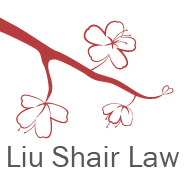Planned Giving to Charities
Many of us have charities that we like to support with our time and money. You may not know that there are different ways to give to charities, including through your Estate Plan, which can provide advantageous tax benefits. As an Estate Planning attorney and active community leader, I enjoy educating clients about their options for planned giving and discussing what works best for them.
I was recently invited to a Planned Giving seminar at Monterey Bay Aquarium, of which we are members, and wanted to share some different ways to give back (using the Aquarium as an example).
Here is a great table outlining different ways to give based on your goals and the benefits.
In addition to helping a cause you care about, giving to non-profit organizations can provide tax advantages that are attractive to you. These tax advantages come in the form of tax deductions, exemptions from the federal estate tax, and elimination of capital gains taxes.
If you are interested in finding the best way for your family to create a legacy with a charity, we can discuss different options. In fact, it is important to discuss these plans with an Estate Planning attorney who has experience with charitable giving. Different charities have different options and levels for giving and may even have requirements for the language your trust should include to ensure the gift is made appropriately. I can help you to make sure your gift meets your wishes and also communicate with the charity to make sure everything is done in line with their requirements.
Here is an example of Monterey Bay Aquarium’s suggested language:
You may not feel ready to have your Estate Plan include a charitable gift and that is okay. Your trust is a living document and can be amended as your life situation and wishes change. For instance, my husband and I have young children and though we regularly contribute to charities, for our Estate Plan, we currently prefer to leave everything to our children. If something, God forbid, were to happen to my entire family, however, my trust can include language that charities would receive a gift (this is called a remainder beneficiary). In the future, when my children have grown, I can revisit my trust when I am more comfortable leaving gifts to the charities I care deeply about.


